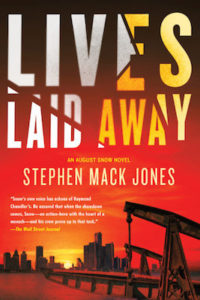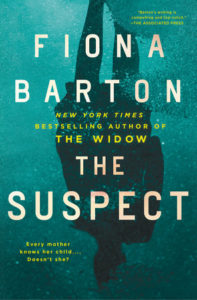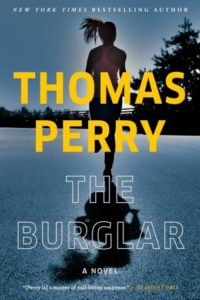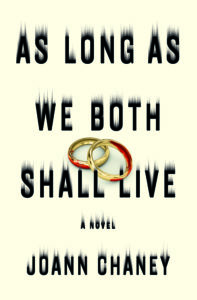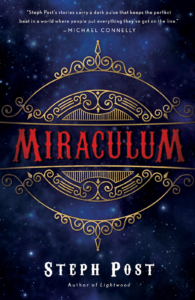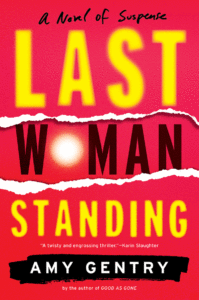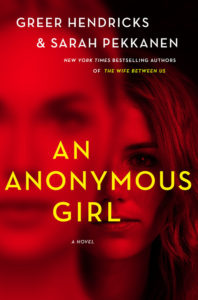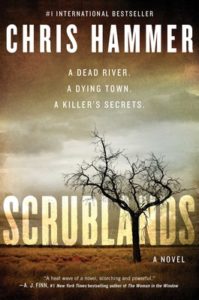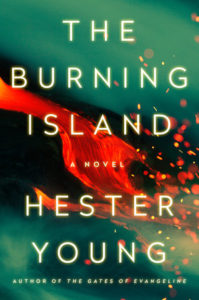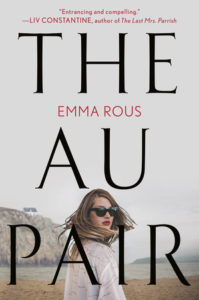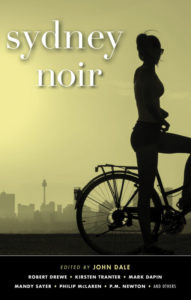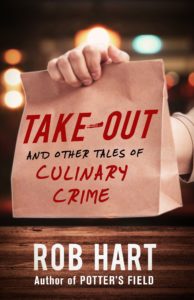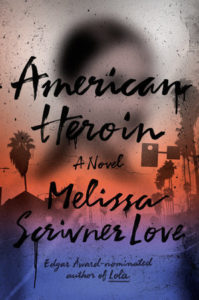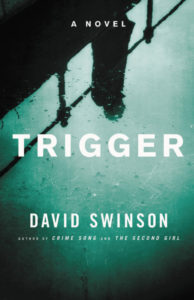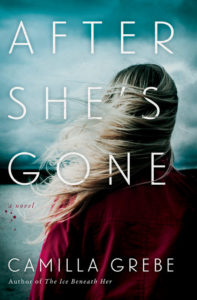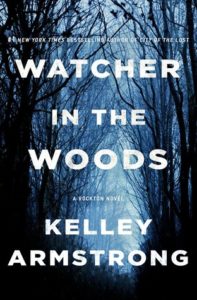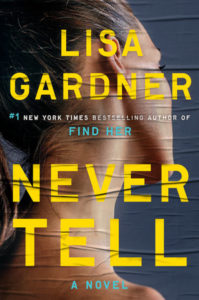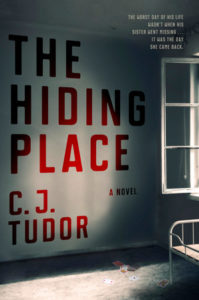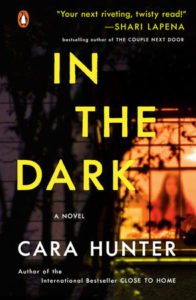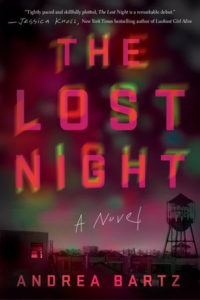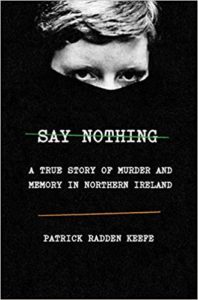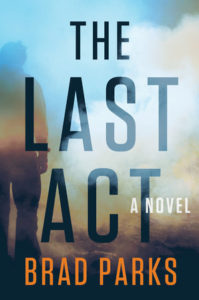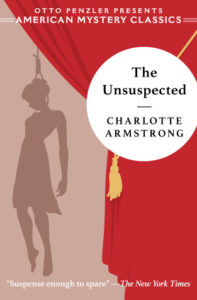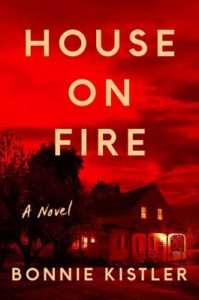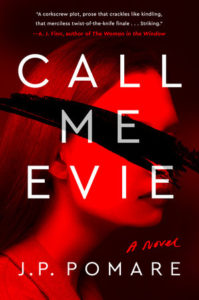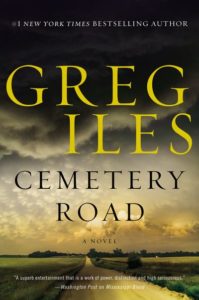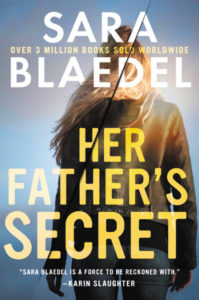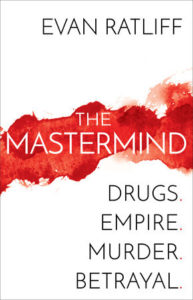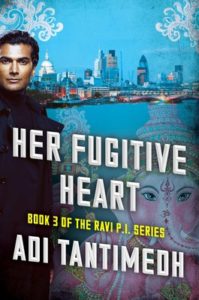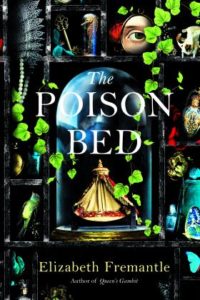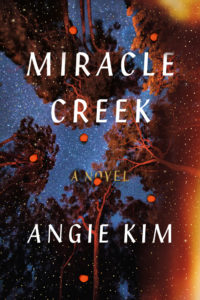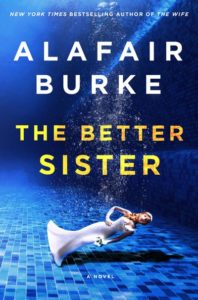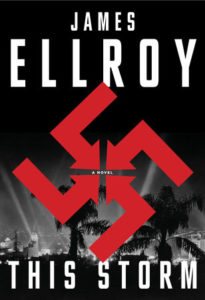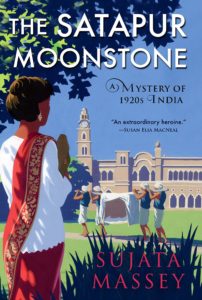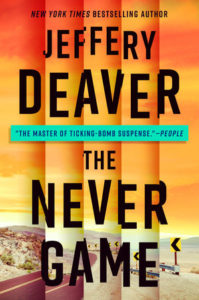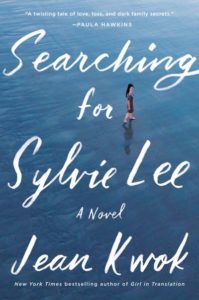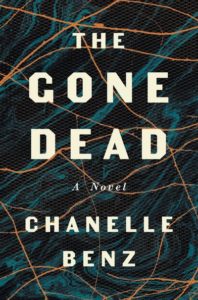To say there’s a lot to be excited about in the world of crime, mystery, and thrillers is an understatement. There have never been so many dynamic books for suspense lovers, so many genuinely thrilling works that value character development, humanity under duress, and insight into society and the individual. Psychological thrillers are on the rise but all over there are new shots of life invigorating the private eye novel, the western mystery, the action thriller, the spy novel, the traditional mystery, and of course, everyone’s new-old favorite, the true crime investigation. 2019 is shaping up to be one of the strongest years in memory for the crime community, as new voices and perspectives expand our ideas about what this literature can and should do.
The year ahead promises crime epics, searing mysteries, the conclusion of some of our favorite series and the launch of others that we’ll be reading for years to come. Over the past few weeks, while we capped off 2018 with a look at some of our favorite books from the year passing, we also scoured catalogues and shelf after shelf of galleys and spoke to everyone we know who’s doing the same in order to find out what fellow crime lovers are excited about in the year to come.
Ahead, you’ll find our month-by-month breakdown of the first part of the year. We’ll be back with a new installment in time for your summer binge reading, and of course you can also check in with CrimeReads every month for a detailed look at the newest and best books. In the meantime, scroll through the months, check out the books that have people buzzing, make your pre-orders and library requests, leave some comments about what you’re excited to read, and let’s all make 2019 a year to remember for crime, mysteries, and thrillers.
January
Joseph Knox, The Smiling Man (Crown)
Knox’s Sirens was one of the most assured and promising debuts in recent years, and he’s back this year with a new investigation for Detective Aidan Waits, working the Manchester night shift, this time focusing on a dead body, a grand old hotel, and more mind-bending, trippy detection work.
Stephen Mack Jones, Lives Laid Away (Soho)
Stephen Mack Jones’s August Snow is still making waves as one of the most innovative and exciting new PI novels to come around in some time, a bold new take on the classic form and a deserved spotlight on Detroit. In this new installment, August Snow is the only man who knows Mexicantown well enough to investigate a human trafficking ring taking advantage of ICE raids. This is noir as it was meant to be: incisive, socially conscious, distinctly situated, told with style.
Lyndsay Faye, The Paragon Hotel (Putnam)
Lyndsay Faye continues to be the queen of smart, feminist historical crime writing with her Oregon-set The Paragon Hotel, in which a refugee from the Mafia washes up on the Pacific Coast in 1921 only to find herself engaged in battle with the powerful local branch of the KKK. We can’t wait to follow Faye’s colorful characters in their battle against American-brand evil.
Ben Winters, Golden State (Mulholland)
From Winters comes a new version of alternate reality in which knowing lies are outlawed, and only those who work for the “Speculative Service” are allowed to…well, speculate. Winters always finds a way to get at a larger truth about our present even as he plays games with what we consider to be an acceptable form of reality, and his new work is sure to delight in the science fiction and crime worlds.
Fiona Barton, The Suspect (Berkley)
We’re excited to read Fiona Barton’s latest twisted tale, The Suspect, in which two backpackers go missing in Thailand and the journalist who heads out to report on the situation may have a surprising personal connection to the crime. Barton excels at merging the political and the personal in uncomfortable and gripping ways; she is a former editor and senior writer for The Daily Mail, and made a big splash in the world of psychological thrillers with her first two novels, The Widow and The Child.
Thomas Perry, The Burglar (The Mysterious Press)
Perry has more than earned his reputation as a master of suspense and a weaver of intricate mysteries that always pack a few surprises. In The Burglar, a young woman in Los Angeles plies her trade as a burglar but soon gets caught up in a murder case, one she decides to solve before it’s pinned on her. Perry has a deft touch with characters that make his books both tense and utterly enjoyable.
JoAnn Chaney, As Long as We Both Shall Live (Flatiron)
Chaney’s first book, What You Don’t Know, didn’t really grab me, but As Long is a much more sophisticated psychological thriller. Take the opening line: “If you try to kill your wife without a plan, you will fail.” The book is centered on a married couple, Matt and Marie; in the beginning of the book while they are out for a hike Marie falls off a mountain and drowns. But did she really fall? And how does Marie’s fate jibe with Matt’s first wife’s, who also died suddenly?
Alan Glynn, Receptor (Picador)
A mashup of Mad Men and the Manchurian Candidate, Glynn’s novel is set in New York City in 1953. The protagonist, ad exec Ned Sweeney, is invited by a charismatic stranger for a cocktail. What’s the harm? Well, the man has actually just recruited him for a top-secret government program called MK-Ultra (which was a real thing), a mind control experiment run by the CIA. But that’s just the beginning: more than sixty years later, Sweeney’s grandson Ray is introduced to a retired CIA man who knows the secrets of both MK-Ultra and a new mind control drug called MDT-48. Glynn, the author of Limitless, strikes the right balance between full-on paranoia and being a little concerned that you are in too deep.
Laura Sims, Looker (Scribner)
This debut is a penetrating and unsettling psychological thriller. A woman’s fixation on her neighbor, a well-known actress, goes from unhealthy to something far more sinister after the women meet at a summer block party. It’s a novel about identity, appearances, and envy, and it’s one of the season’s most timely reads, an innovative experiment in what a thriller can be.
Steph Post, Miraculum (Polis)
Post’s Miraculum is a studied, nuanced, psychologically complex journey into the world of a 1920s carnival working the Texas-Louisiana borderlands, and the charged relationship between a snake charmer and a geek. Mysteries abound, but this novel is more about power and duplicity than solving puzzles. Post is one of the most talented, exciting writers working in the space today.
Amy Gentry, Last Woman Standing (HMH)
Amy Gentry’s cutting new thriller feels a bit like They Shoot Horses, Don’t They?, but for the Austin comedy scene, as her protagonist struggles to break out as a comedy star. There’s also a well-thought-out nod to Strangers on a Train, and we won’t say anything more, lest we spoil the fun.
James Lee Burke, The New Iberia Blues (Simon and Schuster)
Burke remains an icon of the crime fiction world and one of its truly great practitioners, packing more soul and more poetry into a paragraph than some authors manage in a book. With his newest, the sixteenth in the series, Dave Robicheaux is still working bayou terrain when a dead body turns up near the house of one of New Orleans’s favorite sons, a local boy turned Hollywood director. Dave is on the case untangling the mystery of a string of killings that nobody seems to want to talk about.
An Anonymous Girl, Greer Hendricks and Sarah Pekkanen (St. Martin’s)
Hendricks and Pekkanen wrote the astute bestseller The Wife Between Us, which interrogated how differently people can process a shared experience. In Anonymous, a makeup artist named Jessica joins a psychology study conducted by Dr. Shields, a charismatic and commanding figure. Jessica is there for the money and gets a little anxious when the questions in the survey demand that she tell some uncomfortable truths. It takes her longer to catch on to the long game Dr. Shields is playing with her, and when Jessica finally figures out what’s going on her life has been irrevocably changed, and she’s not the only one involved in this so-called experiment.
Tim Johnston, The Current (Algonquin)
Tim Johnston’s second work of fiction, The Current, conjures the same atmospheric terror as his haunting debut, and we’re slowly preparing ourselves for the sense of mounting doom and the inevitable need to stay up all night reading before we start reading.
Chris Hammer, Scrublands (Touchstone)
In this scorching rural noir set in a drought-plagued small town in Australia, a priest opens fire on his own congregants, two German backpackers are found murdered, and a traumatized war reporter finds himself uncovering dangerous secrets. And that’s just the set-up!
Hester Young, The Burning Island (Putnam)
Young’s heroine Charlie Cates offers up a brilliant twist on the supernatural thriller: an investigative reporter who believes in concrete facts and the here-and-now, yet experiences time and again unexplainable visions that lead her to track down missing persons and long-dormant mysteries. It’s the perfect mystery series for the skeptical and hard-nosed among us who nonetheless accept a certain degree of the unknown into our lives.
Un-Su Kim, The Plotters (Doubleday)
This stylish thriller follows a professional assassin who works for a host of shadowy underworld kingpins known as “plotters” as he begins to question the morality of his profession. With such literary touches as a library headquarters for assassins, this one may pander a bit to bookish audiences—and we’re all in favor of that.
Tim Dorsey, No Sunscreen for the Dead (William Morrow)
Serge and Coleman return! This time, they’re ready to solve a murder in a retirement village and help the residents defeat a scam that harkens back to Florida’s early 20th century reputation as the center of land fraud, even with cops hot on their trail. We’re looking forward to reading another wacky tale from one of our favorite Floridians! We also would like to recommend taking a look at the tattoo section of Tim Dorsey’s website. You’ll understand why.
Emma Rous, The Au-Pair (Berkely)
If you like vaguely gothic books set at big rambling estates on the English coast, the Au Pair is the book for you. Twins Seraphine and Danny are twins who along with their older brother, Edwin, will someday inherit Summerbourne, the luxurious home where they spent most of their youth. There is tragedy, though, associated with the twins’ birth and with Summerbourne, as their mother flung herself off the cliffs soon after she gave birth. When Seraphine finds a family photo of her mother holding only one baby, she begins to investigate exactly what happened that day, and her family’s lives and lies slowly unravel.
Sydney Noir, edited by John Dale (Akashic)
Akashic delivers another impeccable anthology with Sydney Noir, a deep dive into the mean streets and sultry demimonde of Australia’s largest (and liveliest) city. We started reading this one in public, fanned ourselves briefly, and decided to continue reading in the privacy of our own homes.
Rob Hart, Take-Out (Polis)
We’ve enjoyed Hart’s Ash McKenna series from the get-go, and we can’t wait to read his first collection of short stories, all centered around a culinary theme. We’re planning to read this one in a restaurant and, hopefully, to find some excuse to say “Leave the gun, take the cannoli” (although there’s a lot more than Italian food represented in this omnivorous delight).
Jessica Barry, Freefall (Harper)
Freefall is a mother-daughter thriller and an impressive debut for Barry. Widowed Maggie Carpenter lives in a small town in Maine, where she and her late husband raised their daughter, Allison. Ally, now living in San Diego, and Maggie have been estranged for years. When Ally is supposedly killed in a private plane crash where her fiance was the pilot, Maggie sets out to find out who her daughter became—and what happened to her.
February
Don Winslow, The Border (William Morrow)
Winslow’s latest is one of the most hotly anticipated titles in recent years, the final in the three-volume Cartel series, which began in 2005 with The Power of the Dog, continued with The Cartel in 2015, and now concludes with The Border. Together, Winslow’s novels make up an epic crime fiction history of the modern War on Drugs, an achievement that rivals Ellroy’s history of the Los Angeles underworld and goes as far as any work of fiction can in explaining how we’ve reached the current quagmire: a region engulfed in violence, the spread of an opioid epidemic, the militarization of police forces across the Americas, and the rise of opportunistic political regimes that capitalize on the suffering. All that, and Winslow tells a hell of a good story.
Ausma Zehanat Khan, A Deadly Divide (Minotaur)
Khan’s fifth to feature the Canadian detectives Rachel Getty and Esa Khattack takes the community policing duo into the midst of a mass shooting in Quebec, cast as a hate crime by a young Muslim man, but as the detectives soon discover, far more more complicated than a crowd out for vengeance would like to believe. Another powerful social justice procedural by an author at the top of her game.
Lauren Wilkinson, American Spy (Random House)
In this late-empire tale of Cold War espionage, Marie Mitchell, a young African-American woman, stymied in her career for the FBI by institutional prejudice and misogyny, is finally given a chance to advance in the organization through joining a shadowy task force aimed at undermining trust in the left-leaning president of Burkina Faso. As Marie finds herself sympathizing more with her targets than her bosses, she must make a choice between loyalty to her nation, or to her heart.
Helene Tursten, Hunting Game (Soho Crime)
Tursten’s The Hunting Game is a classic interloper mystery with a locked-room set up. Embla Nystrom goes on her family’s annual moose hunt, joined by a handsome stranger. When the hunt is soon plagued by mysterious and violent happenings, it’s up to Embla to discover what’s going on.
Gary Phillips, The Be-Bop Barbarians (Pegasus)
From Gary Phillips, whose impressive oeuvre includes novels, graphic novels, anthologies, and everything else under the sun, comes a new tale of two comic book artists in New York City who are pulled into two respective wormholes when one has his creation stolen, and the other is recruited by the FBI to illustrate propaganda aimed at Black audiences. When another comic book artist of color is brutally attacked by police, individual threads intertwine in this Cold War tale of loyalty, solidarity, resistance, and surveillance.
Jane Corry, The Dead Ex (Pamela Dorman/Viking)
Corry once again draws on her experience working in a high-security prison for her third thriller. Parallel stories are narrated by Vicki, an aromatherapist and admitted unreliable narrator whose ex-husband has gone missing; and by Scarlet, an 8-year-old girl whose mother is an addict and forces her to mule drugs. Corry expertly weaves these stories together in unexpected and clever ways.
Tony Bellotto, Bellini and the Sphinx (Akashic)
Bellini and the Sphinx is the American debut for the wildly popular Sao Paulo-based crime series written by Bellotto, the celebrated Brazilian guitarist and writer. His private eye, Remo Bellini, is an homage to Philip Marlowe and the classic American detectives, but with an identity all his own and a milieu, the streets of Sao Paulo, that are as alive and mysterious as any you’ll come across in the genre. American readers have waited too long for this, but they’ll finally get the chance to visit Brazil through Bellott / Bellini’s eyes.
Yrsa Sigurdardottir, The Reckoning (Minotaur)
In this second installment of Sigurdardottir’s Children’s Home trilogy, she continues to indict those who are silent in the face of children’s suffering, while crafting a nail-biter of a plot, with a classic Scandinavian set-up of past crimes resurfacing to haunt the present in gruesome ways. Sure to be another excellent chiller from the queen of Icelandic crime writing!
Boris Akunin, The Coronation (The Mysterious Press)
We’ve been fans of Boris Akunin’s Fandorin series for many years, delighting in the fact that each of Akunin’s mysteries is a new take on a different subgenre of crime fiction, and always happy to learn more details of late imperial Russia through the easy-to-absorb format of historical fiction. Akunin’s latest takes place against the backdrop of Tsar Nicholas II’s ill-fated coronation, and Fandorin must track down a kidnapped royal and prevent the loss of an enormously valuable scepter.
Melissa Scrivner Love, American Heroin (Crown)
This continuation of Scrivener Love’s debut Lola finds our anti-heroine thriving as a gang leader and drug kingpin in her Los Angeles neighborhood of Crenshaw. But it’s not easy being queen. Rivals want to entice her to go to war and she is determined to protect her family, keeping them safe from her world of dealers and violence. Will Lola be able to keep her two worlds separate, or are they doomed to collide?
David Swinson, Trigger (Mulholland)
Swinson’s third to feature drug-addicted (now clean) ex-cop Frank Marr, who, like The Wire’s Omar, earns a civilized living robbing drug dealers of their wares, tackles some contemporary policing issues in what promises to be one of the strongest anti-hero releases of 2019.
Mark Pryor, The Book Artist (Seventh Street Books)
Mark Pryor’s tough-talking Texan is back! Hugo Marston, head of security for the US Embassy in Paris, must solve a murder at an art exhibit full of sculptures made from books, which is really all anyone ever wanted from a Paris-set mystery.
Lee Goldberg, Killer Thriller (Thomas and Mercer)
Goldberg’s thrillers are some of the wittiest around, and his newest doesn’t disappoint. A thriller author visiting China on a research jaunt is suspected of being a spy because, well, his thrillers keep managing to come true, and the plot he’s researching in China just happens to be unfolding unbeknownst to him or anyone else outside the government. Goldberg manages a meta-thriller that’s genuinely heart-pounding but also clever enough to keep you smiling and reading on.
Camilla Grebe, After She’s Gone, translated by Elizabeth Clark Wessel (Ballantine)
While most Scandinavian crime fiction has a little of the fairy tale in it, After She’s Gone has more than most. The novel begins when an injured woman emerges from the ancient forest with no memory of how she got there, and continues as she investigates not only the small community in which she was found, but her own past.
Renee Knight, The Secretary (Harper)
What happens when your fiercest friend becomes your worst enemy? Renee Knight’s slow-burn psychological thriller takes us into the twisted mind of a obsessively loyal secretary who knows far more than she’s letting on, in what promises to be THE cat-and-mouse game of 2019.
Michelle Frances, The Temp (Kensington)
While a lot of psychological thrillers are, let’s be clear, about fears of being replaced, The Temp takes this fear to the next level, as Carrie, an executive on maternity leave, finds herself dealing with the very real risk of being forgotten in favor of her temporary replacement, Emma, who’s managed to worm her way not only into the affections of her colleagues, but also every aspect of Carrie’s romantic and financial existence.
Kelley Armstrong, Watcher in the Woods (Minotaur)
Kelley Armstrong’s latest chiller takes us into a one-horse town located in Yukon, Alaska, where the sole policewoman must investigate a murder while keeping her town full of outlaws and shut-ins safe from the outside world.
Christobel Kent, What We Did (Sarah Crichton Books / FSG)
In this slow-burn psychological thriller of past traumas come back to haunt the present, a woman leading a retiring life in a quiet, small village finds herself immersed in painful childhood memories when her old music teacher, who molested many of his students, comes to visit. A haunting meditation on trauma, secrets, and long-overdue retribution.
Andrea Camilleri, The Overnight Kidnapper (Viking/Penguin)
Camilleri’s long-running Inspector Montalbano series is always a pleasure, with each new installment sure to transport readers to the cloistered, sunny, dangerous world of Sicilian crime. In The Overnight Kidnapper, Montalbano is faced with a vexing mystery after a number of women are kidnapped and held overnight, then released under strange circumstances.
Lisa Gardner, Never Tell (Dutton)
D.D. Warren and Flora Dane are back in a new thriller about lingering evil and the need for closure that can never quite be achieved, as a strange new murder case stirs up old troubles. Gardner is a staple of the thriller scene, with each new installment a cause for excitement and feverish reading.
C.J. Tudor, The Hiding Place (Crown)
Tudor’s The Chalk Man was one of last year’s favorite debuts, and this year Tudor is back with an intense, twisted story about a man who goes back to his roots by lying his way into a teaching job at a high school in order to take some old enemies by surprise. The Hiding Place is a thriller in every sense of the word and promises plenty of lingering trauma, intricate vengeance schemes, and one heart-pounding turn after another.
Cara Hunter, In the Dark (Penguin)
The second in what will hopefully be a long-running series featuring Detective Inspector Adam Fawley of the Oxford police, In the Dark promises to be just as engrossing and complex as her previous book, Close to Home. While Home was a sharp take on the increasingly common missing child thriller, Dark reckons with discovering how dangerously little we know about our neighbors.
Peter Robinson, Careless Love (William Morrow)
Detective Superintendent Alan Banks is back on the case with a new investigation, this time into two mysteriously connected deaths, one on a country lane, the other in (you guessed it) the moorland. Robinson is just about synonymous with Yorkshire crime fiction at this point, with a bevy of readers eagerly awaiting their next journey alongside DS Banks into the wild and surprisingly murderous English countryside.
Sophie Hannah, The Next to Die (William Morrow)
Hannah is a modern-day queen of suspense and just about anything she writes is sure to leave your spine tingling. In The Next to Die, a serial killer is marking his victims by presenting them with cryptic books, and a standup comedian finds herself with one of those very books, presumably next in line for the slaughter. Hannah moves the action along but always knows just where to linger as the terror settles in and spreads across every facet of the story.
Karen Ellis, Last Night (Mulholland)
Ellis’s first novel bucked convention with its unusual take on the serial killer novel, while her latest shines a spotlight on a new corner of the city. In Last Night, her NYPD detective explores the world of Brighton Beach, an old Russian stronghold, but in this case, cross-cultural identity and privileges complicate matters. Ellis takes a balanced, penetrating look at trauma and the lasting impact of crime.
Andrea Bartz, The Lost Night (Crown)
This hipster mystery (hipstery?) is set in Brooklyn (where else?) in 2009, when a member of a group of friends, all recent college grads, is found dead. Edie, the victim, wasn’t the most stable person, but what first looks like her suicide turns into a murder investigation, with her old crew as the prime suspects. What happened to Edie is connected with a secret one or more of her friends has been hiding.
Guillermo Saccomanno, 77 (Open Letter)
Buenos Aires in 1977, under the Videla dictatorship, was a dangerous place, especially for Gómez, a gay literature teacher whose students are disappeared and who wanders the city streets at night, drifting in and out of taverns, bathhouses, and various entanglements romantic and sexual. This is a fever dream of a novel, a portrait of a hypocritical, oppressive society and the strained, uncanny lives of its citizens.
Michele W. Miller, Widows-In-Law (Blackstone Publishing)
Ever since Lo picked up the phone and talked to her ex-husband’s new wife in The Girl on the Train, we’ve been psyched for a new trend in crime fiction: women talking to each other, and sharing potentially important information about dangerous men. Michele W. Miller explores the many ways women can help each other in crime fiction in her new novel, Widows-In-Law, in which a woman helps out her recently deceased ex-husband’s new wife only for the two to discover shocking secrets about the man they thought they knew best.
Alan Parks, February’s Son (Europa)
Parks continues to bring us hard-boiled fiction set in Glasgow in the 1970s, a town and setting that should get the noir fan sitting up straight in anticipation of some of the most brutal and beautiful prose around. Parks’ Glasgow trilogy is soon to be a television show, and we’re excited to read the series ahead of the show’s release.
TRUE CRIME SPOTLIGHT:
Patrick Radden Keefe, Say Nothing: A True Story of Murder and Memory in Northern Ireland (Doubleday)
In 1972 in Belfast, Jean McConville was brutally abducted from her home and children in one of the most horrifying incidents of The Troubles; her remains would not be found for over thirty years. In the meantime, though her attack was an open secret, nobody would come forward to authorities with information about the culprits. New Yorker staff writer Patrick Radden Keefe frames this penetrating study of The Troubles and the aftermath with an in-depth look at the McConville case. Long overdue answers are unearthed in the dogged investigation, but a bigger perspective is also presented: through interviews and archival work, Radden Keefe brings readers to the very heart of the trauma, to the atrocities committed on both sides, and to the very human cost.
March
Donna Leon, Unto Us A Son Is Given (Atlantic Monthly Press)
Early spring brings us a new Donna Leon novel once again, this one the twenty-eighth in the ever popular, ever enjoyable Commissario Guido Brunetti series. This time, the Commissario is being asked to take on an investigation of a more personal nature, when an elderly and aristocratic family friend states his intention to adopt a young man of mysterious origins and to make him his heir. Family and professional duties intersect as a murder investigation also unfolds; and of course Venice is always at its most beguiling and enchanting when seen through the lens of a Leon mystery.
Craig Russell, The Devil Aspect (Doubleday)
Historical crime fiction gets seriously gothic in Russell’s latest thriller, set in mid-30s Czechoslovakia, alternating between a serial killer investigation in Prague and an asylum in the mountains outside the city, where a new doctor arrives to look after six of the country’s most notorious, bordering on mythical criminals. Russell is always sharp with the procedural aspects of crime, but here he branches out into some memorably haunting atmospherics.
Janet and Peter Evanovich, The Big Kahuna (Putnam)
More madcap thrills from the Evanovich clan, this time from mother Janet and son Peter, as they team up to write the Fox and O’Hare series, pairing an FBI agent and a con man (obviously) to solve the more far-flung crimes that come across the federal radar. In this volume, the crimes involve a missing tech mogul, Instagram fame, models, scheming partners, and all the other zany action readers have come to expect and enjoy when there’s an Evanovich at the pen.
Jacqueline Winspear, American Agent (Harper)
In this 15th work to feature the ever-independent crime-solving nurse, Maisie Dobbs, Winspear’s heroic investigator must solve a mystery against a backdrop of the London Blitz, while also working hard to protect an evacuee staying under her roof. We’re confident that Winspear, as always, will deliver both history and thrills.
Harlan Coben, Run Away (Grand Central)
Harlan Coben takes on a parent’s worst nightmare in this cat-and-mouse thriller about tracking down an errant child only to find out she’s changed dramatically. We’ve been promised a twist at the end and we’re looking forward to being quite surprised.
Mario Giordano, Auntie Poldi and the Vineyards of Etna (HMH)
With this follow-up to the debut, Auntie Poldi and the Sicilian Lions, Giordano looks to cement the series starring Auntie Poldi, retiree, wine aficionado, a woman of honor with a nose for mystery and an appreciation for the many delights of the Sicilian countryside. The Auntie Pold mysteries offer up plenty of great armchair traveling and detection, bringing a strong note of the sensual back to the southern European mystery.
Abir Mukherjee, Smoke and Ashes (Pegasus)
Abir Mukherjee’s historical crime series set in 1920s Calcutta has been winning acclaim and readers thanks to the lush world-building, intricate character work, and the remarkable wit with which the stories are told. In the new installment, Sam Wyndham and Surrender-Not Banerjee are back on a murder case and also trying to kick Wyndham’s disorienting opium habit. Mukherjee’s work is playful while also offering a serious look at colonialism and cross culture mystery.

Anna Smith, Blood Feud (Quercus)
Kerry Casey is the antiheroine of this gritty thriller, a Michael Corleone for the Glaswegian underworld, reluctantly ascending to the top of a crime family, hellbent on vengeance and making her family’s business legit, or anyway a little more legit. Anna Smith is a longtime reporter turning to crime fiction in a big way, with this high-octane, finely observed thriller.
Brad Parks, The Last Act (Dutton)
Parks gives a classic crime set-up a new twist as an out-of-work actor named Tommy Jump accepts a dangerous, morally ambiguous, lucrative offer of government service in going undercover in a federal prison hoping to worm his way into an incarcerated banker’s confidence, hoping to get the tip on a cartel’s money source. Typical to Parks work, this one will keep readers gripped from the first page and promises plenty of heart-pounding action and a few bad guys taught the hard ways of justice.
Charlotte Armstrong, The Unsuspected (American Mystery Classics)
American Mystery Classics continues to turn up lost gems and authors for mystery lovers to re-discover. In The Unsuspected, a suspicious suicide and a cryptic note lead a woman to investigate her friend’s death, going on an odyssey through the New York theater world and its many, many eccentrics and rogues. Armstrong was herself an accomplished playwright and is an informed, witty guide to a fascinating subculture.
Tanguy Viel, Article 353 (Other Press)
In this extremely French take on gentrification, land fraud, and other capitalist schemes, a real estate developer is cast into the sea in a depressed northern town after his plans to revitalize the area with a gleaming new seaside resort fail to come to fruition. Article 353 is as much about self-deception as it is about swindlers, with a narrative delivered by the down-on-his-luck man accused of killing the developer after failing to recoup his life savings, invested into the resort project as a last-ditch attempt to win back the affection of his estranged family.
Bonnie Kistler, House on Fire (Atria)
Kistler, a former Philadelphia litigator, makes a highly toured debut with House on Fire, a domestic suspense novel that looks at a very modern family experiencing a moment of tumult after a drunk-driving accident kills one child and puts the other on trial for manslaughter. Kistler has a clear mastery of the legal drama but also a deft touch with complicated family dynamics and the tightening noose of a trauma that refuses all efforts at a cut-and-dry solution.
Joe R. Lansdale, The Elephant of Surprise (Mulholland Books)
From the originator of splatter-gore and author of the East Texas-set Hap and Leonard series comes a new adventure for his odd couple of investigators and their no-nonsense boss (who, after many years of a Sam-and-Diane situation, is now married to Hap). Hap and Leonard are trying to get home through one of the worst floods in memory (and floods are no joke in pine country) when the happen upon a fugitive woman with two goons in hot pursuit.

Elly Griffiths, The Stranger Diaries (HMH)
An English teacher with an expansive knowledge of gothic literature finds herself tangled in a web of murder and mystery that begins more and more to be a kind of twisted work of gothic storytelling in this impressive new mystery. Griffiths writes at the perfect intersection of procedural and psychological thriller, with her latest adding a strong dose of dark atmospherics to spin a truly unnerving story.
Niklas Natt Och Dag, The Wolf and the Watchman (Atria)
In this wicked historical thriller set in 1793 Stockholm, a mutilated body is the start to an investigation that brings in every class and every corner of the city, in what promises to be one of the most well-researched historicals of the year.
Miles Millar and Alfred Gough, Double Exposure (Grand Central)
The guys who created the WB’s beloved superhero teen drama Smallville have written a spy thriller and that’s really all you should need to know to start anticipating the release of Double Exposure in early spring. But, for those who need a bit more enticement, know that this novel is also about nostalgia and cinephilia and Cold War spycraft and also maybe Hitler survived and needs to be caught. Double Exposure is standout spy fiction sure to win over readers, hopefully heralding the launch of a new thriller series.
J. P. Pomare, Call Me Evie (Putnam)
An electrifying debut from Australian author J.P. Pomare looks at the broken memories of a young woman kept in captivity against her will, told that it’s for her own good, all the while struggling to remember the supposed events that tore her life down. Pomare has a firm grip on the psychological torment and striving that piece this complex, riveting story together.
Greg Iles, Cemetery Road (William Morrow)
Fresh from his triumphant conclusion to the Natchez Burning trilogy, Greg Iles once again looks to entertain and educate in equal measure. In his latest, the murder of an archaologist prompts an investigation into local history by a hot-shot D.C. reporter recently returned to his small Missippi home town. In Iles’ work, the ghosts of the past are never silent, and the weight of Southern history is palpable, present, and there to be dealt with, not discarded.
Annie Ward, Beautiful Bad (Park Row)
We first remarked on this one for it’s arresting cover design, but the plot has us quite looking forward as well, with one of the most refreshingly international set-ups in contemporary psychological thrillers we’ve seen in a while. Two women who first meet as American exchange students in Spain later share secrets and lies in Eastern Europe, all of which come back to haunt them in post 9/11 New York.
Sara Blaedel, Her Father’s Secret (Grand Central)
Blaedel is a major force in Denmark’s booming crime fiction scene, and in her latest, her work is also a reflection of the world’s increasing fear of visiting the U.S., as a Danish woman travels to Wisconsin after receiving a strange bequest from an estranged father, and there finds herself drawn into the mystery around the killing of a local woman. Blaedel knows suspense and dread, both of which infuse her pages with a special kind of momentum.
William Boyle, A Friend Is a Gift You Give Yourself (Pegasus)
Boyle is one of noir’s most exciting voices, and with his newest book he injects a madcap road trip energy into his finely-tuned criminal world, as an unexpected trio of elderly women flee New York with various mobsters and crime families determined to find them. We’re excited to see a dash of Preston Struges thrown into the New York City Noir Boyle has been mastering these last years.
Adam Abramowitz, A Town Called Malice (Thomas Dunne Books)
Following up with a second installment in the “Bosstown” series, Abramowitz delivers another gritty, fast-paced noir starring Zesty Meyers, a bike messenger who consistently finds himself navigating Boston’s ornate underworld clans and cliques. The big advantage of having a bike messenger as your hero: you feel the Boston streets in this novel; the changing neighborhoods take center stage as real estate development, corruption, and long dormant crimes stir up new problems for Zesty and his brother’s ragtag moving company.
TRUE CRIME SPOTLIGHT:
Evan Ratliff, The Mastermind (Random House)
Ratliff has been opening eyes with his penetrating journalism from far-flung corners of the tech and criminal underworld for years, putting him in a perfect position to tell the shocking story of Paul LeRoux, a crime kingpin for the new century. LeRoux began as a programmer who saw a gap in the internet’s black market and began to fill it—with drugs, guns, and eventually all manner of contraband and illicit activity, building one of the world’s most formidable and deft criminal networks. Ratliff’s investigative chops and tech savvy are second-to-none, and in The Mastermind he’s able to tell both a gripping true crime story and a larger tale about the evolution of organized crime in the internet era.
C.J. Box, Wolf Pack (Putnam)
Box has been mastering the modern-day western with his series focused on Joe Pickett, a Wyoming game warden with a hardened set of principles and a tendency to come up against tough company on his parkland. Wolf Pack involves drones, the Sinaloa Cartel, and the quest to bring killers—of wildlife and of people—to justice. Box has made a strong case to stand among the luminaries of modern crime fiction.
Samantha Downing, My Lovely Wife (Berkley)
This promises to be one the year’s most anticipated psychological thrillers, with a twisted marriage at its core, and plenty of dirty little secrets to be dished out slowly. The couple at the center of My Lovely Wife may seem like an ordinary suburban family, but as we know from many, many, domestic suspense novels, appearances are bound to be deceiving.
TRUE CRIME SPOTLIGHT:
Cara Robertson, The Trial of Lizzie Borden (Simon & Schuster)
Cara Robertson’s meticulously researched true crime account of Lizzie Borden’s dramatic trial brings in newly unearthed materials for a novel take on a case that continues to fascinate and horrify in equal measure. We’ll never stop being curious about Lizzie Borden, or the legal machinations that helped her get away scot-free.
April
Daniel Sánchez Arévalo, Alice’s Island (Atria)
Arévalo’s third novel, and first to be published in English, this elegant psychological thriller follows the perfect marriage of Alice Dupont as it falls apart to reveal something much messier underneath Alice’s carefully crafted facade. The catalyst for this erosion? Alice’s husband dies in a mysterious car crash that may not have been an accident. Set in Nantucket, this novel makes full use of it’s atmospheric New England setting.
Philip Kerr, Metropolis (Putnam)
The release of Philip Kerr’s last Bernie Gunther novel is bittersweet, given the author’s untimely death in early 2018. The use of the word “Metropolis” is a clue that this book takes place in Bernie Gunther’s early days of solving crimes in the anything-goes 1920s. While we’re still grieving the loss of a great writer, we’re pleased to know the series will wrap up with a visit to the world that first made Bernie Gunther what he is.
Hanna Jameson, The Last (Atria)
The post-apocalyptic thriller meets the countryside manor mystery in Jameson’s new book, a beguiling mashup of genres with an incisive, assured style and a gripping conceit. An American academic in the throes of a personal crises attends a conference at a mountain resort in Switzerland…and then the world basically ends. Except, that is, for the attendees of the conference, survivors of a world cataclysm who attempt to keep their wits about them as they solve a very local mystery: the tragic death of a young girl, with all the hotel residents suspected of the crime. It’s a clever twist on the traditional mystery and modern-day dystopian fiction.
TRUE CRIME SPOTLIGHT:
Mark Bowden, The Last Stone (Atlantic Monthly)
In 1975, two girls were kidnapped from a mall outside Washington D.C. The kidnappers left few viable clues and while the region was glued to the story, authorities were stymied. Almost forty years later, a detective’s revelation sparked a new investigation into the case and a suspect imprisoned on other charges who, along with his reclusive family, seems hellbent on keeping his secrets. Bowden, now an acclaimed author of epic crime and war histories, knows the case inside and out—he was a young reporter just starting out in Baltimore when he was tasked with covering the story. In The Last Stone, he dives back into the case alongside the detectives and tells with enormous skill and empathy the story of those missing girls and the effort to bring their assailants to justice.
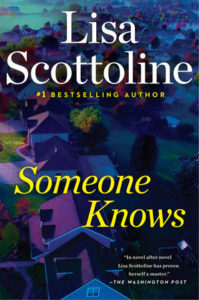
Lisa Scottoline, Someone Knows (Putnam)
In Scottoline’s new thriller, friends reunite twenty years after a horrible tragedy, an initiation game gone wrong, resulting in a death that would change the course of all their lives. Now they’re back in their Main Line enclave, some more ready than others to deal with the legacy of what they did. Scottoline is a suspense master, with all the usual thrills and insights on display.
Alice Feeney, I Know Who You Are (Flatiron)
Feeney is back with a follow-up to one of last year’s most buzzed-about debuts, Sometimes I Lie. In her latest, an actress comes home to find her husband dead and herself the prime suspect, also possibly the subject of a bizarre scheme from someone who knows the one thing she’s always kept secret. Feeney is quickly establishing herself as a luminary of psychological thrillers, a reputation this novel is sure to bolster. This is suspense as it was meant to be written.
Miriam Toews, Women Talking (Bloomsbury)
The premise of Women Talking is simple but terrifying: there have been a series of rapes in a small Mennonite village, the men responsible have been charged but will soon be forgiven by the elders of their community, and the women of the village have gathered to determine the proper course of action: stay and do nothing, stay and fight, or leave.
Rachel Howzell Hall, They All Fall Down (Forge)
This is the first stand-alone from author of the Lou Norton series, Rachel Howzell Hall, who knows her genre just as well as she knows her city of Los Angeles. In Hall’s latest, seven strangers, each with their own peculiar secrets, find themselves imperiled during a beach vacation on a private island gone terribly awry. Hall is an expert at capturing a giant metropolis, and we can wait to see her talents on display in a more intimate, locked-room setting.
Adi Tantimedh, Her Fugitive Heart (Atria/Leopoldo & Co.)
Tantimedh’s wild and provocative trilogy comes to a satisfying close with Her Fugitive Heart. Ravi Chandra Singh is the ex-seminarian turned private eye turned special agent who also gets mystical visions of Hindu gods watching his and his colleagues’ actions and reveling in their missteps, misdeeds, and relentless drama. The final installment includes a clever twist on the English country manor mystery, with agents from the Golden Sentinels surveilling the glamorous guests at a weekend affair. There’s also the usual soul-searching from Ravi, caught between this world and another, as plenty of action and madcap thrills swirl around him.
Alexander McCall Smith, The Department of Sensitive Crimes (Pantheon)
The most charming man in crime fiction takes a vacation from 44 Scotland Street and Mme. Precious Ramotswe’s Botswana to begin a new series featuring Inspector Varg of Malmo, Sweden, who in a substantial break from the usual Scandinavian-set fair, investigates small, petty, humorous, and rather realistic crimes. Whether you’ve been stabbed in the knee, or your imaginary boyfriend has disappeared (or, perhaps, you’re just bored and making things up because you live in Sweden), Inspector Varg is the functionary tasked with finding a solution to even to the most minor of crimes.
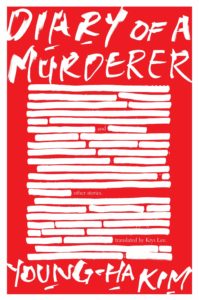
Young-Ha Kim, Diary of a Murderer (HMH)
Kim is expert at finding the humanity inside the other, the comedy inside the tragedy, and the twisted within the seemingly normal. In his short story collection Diary of A Murder, the titular novella guides us through the deteriorating mind of a serial killer as he tries to save his daughter from becoming victim to another killer in town before he succumbs to alzheimer’s, while subsequent short stories showcasing an O. Henry-level irony mixed with an Italo Calvino style of humanism.
TRUE CRIME SPOTLIGHT:
Charles Lane, Freedom’s Detective (Hanover Square Press)
Between centuries of slavery, and another century and a half of slavery by other names, was a glorious period known as Reconstruction, the memory of which the United States has tried to erase ever since, opting for a narrative of uninterrupted progress, instead of the realistic messiness of history, wherein millions of people can have their rights restored, then have those rights taken away 10 years later. This is the story of the first Ku Klux Klan, formed during Reconstruction as the weapon for depriving freed slaves of their newly-won civil rights, and the government forces who attempted to fight the extreme violence of the KKK, only to yield to nearly all of its wishes within a decade.
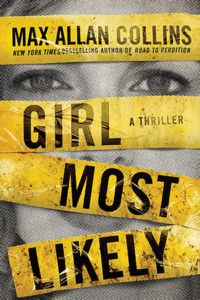
Max Allan Collins, Girl Most Likely (T & M)
Collins is a crime fiction icon who never fails to produce and whose books never fail to grip. In Girl Most Likely, a small town plays host to a big high school reunion, attended both by the police chief and its “most likely to succeed” favorite daughter, a now-famous reporter who burnt many a bridge in her hometown. A triple murder spoils the festivities and requires a dogged investigation from the chief, who has her own complicated history with the town and the victims.
Lexie Elliott, The Missing Years (Berkley)
Elliott’s debut examined the disappearance of a neighboring woman which coincided with a group of friends renting a country house in France. In Years, Elliott takes us to Scotland. Alisa Calder just inherited the Manse, a gothic house in the Highlands where she was born and raised. But Alisa has spent her life trying to escape her memories of the Manse and has no plans to return. But wait: she’s only inherited half of the house; the rest belongs to her missing father. Her mother’s death is the catalyst for Alisa’s investigations into her father and her past.
Elizabeth Premantle, The Poison Bed (Pegasus)
If you were thinking that this year what you really needed was a sexually provocative thriller set in the 17th century Jacobean Court, full of palace intrigue, warring families, and mysterious crimes, then you’re in luck, because here comes Elizabeth Premantle and her new historical thriller, The Poison Bed. Premantle is one of the most electric writers working in the historical space today.

Andreas Pfluger, In The Dark (Dover)
In the first US publication of Andreas Pfluger’s internationally bestselling Jenny Aaron thriller series, Aaron, retired from her elite police unit after an injury leaves her blinded, must return to work and match wits with a killer out for blood even as she navigates her newly darkened world.
Angie Kim, Miracle Creek (Sarah Crichton Books)
Angie Kim’s masterpiece of grief, hope, and recrimination takes place in the small town of Miracle Creek, wherein an oxygen tank said to cure everything from autism to male infertility goes from a refuge to an inferno after an arsonist seals the fate of those seeking treatment inside. A complex novel of parenting, prejudice, and putting blame where blame’s due, this one is not to be missed.
Alafair Burke, The Better Sister (Harper)
Burke follows up last year’s hit, The Wife, with another provocative “domestic noir” set in the rarefied world of New York’s professional elite. This time the story centers on two sisters, one working her way into publishing, the other married to a star attorney, with a few simmering secrets between them and an untimely death that brings the two women back together. Burke brings readers into an enticing world and then shatters them with one startling revelation after another, always keeping a firm grip on the suspense and packing each sentence full with feeling. The Better Sister is sure to be one of the year’s most celebrated suspense novels.
May
James Ellroy, This Storm (Knopf)
A new Ellroy novel is always cause for excitement amongst crime readers, but especially so with The Storm, which fills in some of the gaps of his epic and still evolving alternate history of L.A.P.D. corruption, West Coast development, and American greed. This one is set during WWII in Los Angeles, with a startling look at police profiteering, the rise of fascism in midcentury America, the internment of Japanese-Americans, and a generally mind-altering exploration of the ideological battles of good and evil fought contemporaneous to the famous battles of WWII.
TRUE CRIME SPOTLIGHT:
Randall Sullivan, Dead Wrong: The Continuing Story of City of Lies: Corruption and Cover-Up in the Notorious B.I.G. Murder Investigation (Atlantic Monthly Press)
The case that transfixed the country for so long continues to unfold, as Randall Sullivan, author of LAbyrinth, the 2002 book that offered an explosive account of the Christopher Wallace / Notorious B.I.G.’s murder, is back with an updated look at what we know now. And because Sullivan is one of the most able and dogged reporters around, this isn’t just any account of the Biggie assassination; Sullivan has new interviews and new evidence that implicates high-ranking law enforcement officials in the killing and the coverup. This is true crime journalism at its most dynamic. Understanding the Biggie / Death Row / Tupac dynamic is key to understanding the pop culture of the 1990s, and the crime at the center of that story also happens to be one of the keys to understanding the corrupt power structures that still rule over the West Coast’s biggest city.
Sujata Massey, The Satapur Moonstone (Soho Press)
In Massey’s second to feature her series protagonist Perveen Mistry, 1920s India’s only female lawyer, Mistry must journey to the princely state of Satapur, where she will aid a number of noblewomen in purdah with an ongoing dispute over how to educate their children. When Mistry arrives at the palace, however, she finds vendettas and secrets behind every corner, and must resolve far more than a simple argument over how to educate a prince.
Jeffery Deaver, The Never Game (Putnam)
Deaver, the man behind the ever popular Lincoln Rhyme series (starting with The Bone Collector) is back this year with a new series featuring Colter Shaw, a modern-day tracker who travels the country looking for missing persons and collecting the rewards. In The Never Game, he’s infiltrating the Silicon Valley world of tech giants and overworked engineers, as a young woman goes missing and the clues point toward a connection to a budding video game empire.
Jean Giono, A King Alone (NYRB)
In a remote Alpine village in the mid-19th century, a corpse is discovered in the branches of a twisted tree, and a philosophical and mysterious police officer wanders about, investigating the crime. With an eerie, atmospheric setting and suspicious small-town characters, this police procedural is sure to cross over in the the territory of psychological thrillers.

Agnete Friis, The Summer of Ellen, translated by Sinead Quirke Kongerskov (Soho Press)
In this meditative exploration of past crimes and toxic masculinity, a middle-aged man returns to his family farm to help his aging great uncle find out once and for all what happened to Ellen, a young, rebellious hippie who disappeared from a nearby commune in the late 70s.
Houston Noir, edited by Gwendolyn Zepeda (Akashic)
First came Lone Star Noir, way back in 2010, with collections featuring locales all around the great state of Texas and its multiplicity of environs in which to dump a body or tell a tall tale. Next came Dallas Noir, in 2013, paying tribute to Texas’ glitziest city, linked to some of the most infamous acts ever committed on US soil. And now, at last, Houston Noir has arrived, an ode to the grime, grit and glamour of Texas’s largest, most fascinating (and, to be fair, probably ugliest) city. Houston is unique in Texas history in that it’s a large, multicultural port city that has never had zoning laws. While that can mean oil refineries located right next to schools, it can also mean—and does mean—one of the least segregated cities in the United States, which, combined with urban sprawl, means every kind of story, in every kind of combination, is up for grabs as a Houston story. We can’t wait to see all the different visions of this complex town! Next up, Austin Noir? Eh? (The Austinite on staff is always happy to help out.)
TRUE CRIME SPOTLIGHT:
Stay Sexy & Don’t Get Murdered, by Karen Kilgariff and Georgia Hardstark (Forge)
This dual memoir from Karen Kilgariff and Georgia Hardstark, the creators of the wildly popular podcast My Favorite Murder, promises to share the same trademark mixture of empathy, practical advice and ghoulish humor that’s so captivated audiences, and I can’t wait to learn more about two of my favorite podcasters! Here’s hoping they go on a very extensive tour to promote the book…
June
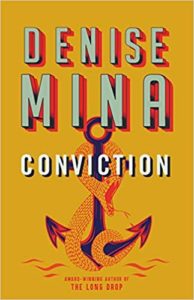
Denise Mina, Conviction (Mulholland)
Denise Mina is one several authors taking a departure from her usual fare, although as is typical with Mina’s work, her latest still manages to condemn our entire society as rotten from the ground up, although this time, with a scrappy heroine bound to lead to more empowered feelings than her brilliant bummer of a novel The Long Drop. In Conviction, a woman in hiding finds herself exposed to her old pursuers and on the run with a pop star after an unfortunate tabloid photo. Immersed in the true crime age, but with a classic fugitive on the run scenario, Conviction should be the textbook for how to bring together old forms and new ideas.
Jean Kwok, Searching for Sylvie Lee (William Morrow)
From the critically acclaimed author of Girl In Translation comes a new novel of a woman gone missing, and her family’s search for her—and for themselves. When her talented elder sister Sylvia goes missing on a trip to Norway, Amy Lee, the baby of the family, tries to track down her sister’s whereabouts, and in the process unearths secrets both shocking and banal.

Kate Atkinson, Big Sky (Little, Brown)
After last year’s stellar entry into the espionage canon, Transcription, we’re excited to see Atkinson returning to her series detective, Jackson Brodie, as he takes up a new (but just as miserable) life in a depressed seaside town. There are, of course, plenty of small-town secrets ready to be revealed by an inquiring PI, and we can’t wait to read what promises to be a perfect blend of traditional setting and modern sensibilities.
Chanelle Benz, The Gone Dead (Ecco)
Chanelle Benz’s 2017 story collection, The Man Who Shot Out My Eye Is Dead, was one of fiction’s most arresting and promising in some time, and now Benz is back with her first, eagerly awaited novel, The Gone Dead. The story centers on Billie James, a woman who returns to the family homestead in Mississippi after a long absence to find a troubling legacy, namely the whispers about her father’s death, and how she disappeared the same day. The Gone Dead promises all the moral and social complexity of Benz’s shorter works, thick with atmospherics and a deep, shuddering sense of humanity.
JULY
Adrian McKinty, The Chain (Mulholland)
One of the editors on staff sped through this one while she was supposed to be packing for vacation, and as a consequence, had to go shopping a LOT over the holiday break. In this nail-biter of a thriller, a parent’s worst nightmare becomes a parent’s greatest triumph, as a young girl’s kidnapping becomes a focal point for her cancer-struck mother to do whatever it takes to get her little girl back. This is likely to be one of summer’s most buzzed about books.

Lisa Sandlin, The Bird Boys (Cinco Puntos)
In Sandlin’s second to feature her ex-con-turned-private-eye Delpha and her sympathetic boss Phelan, the two take on a case involving blood, brothers, and Beaumont’s darkest secrets. The Texan on staff is confident in saying that Lisa Sandlin’s series is the best thing to ever come out of Beaumont. You don’t believe us? Take a visit there. And try to breath.
Alison Gaylin, Never Look Back (William Morrow)
In Gaylin’s latest psychological thriller, a true crime podcaster investigating ae series of killings from the 1970s teams up with a woman whose mother may have been involved in the murders to look into the long-gone-cold cases. Gaylin’s previous work make excellent use of the dark side of social media, and we can’t wait to see her explore the world of podcasting.
Laura Lippman, Lady in the Lake (William Morrow)
Lippman’s latest takes us back to 1960s Baltimore for a welcome return to her old haunts after several stellar stand-alone crime novels. When a white middle-class housewife leaves her comfortable existence to investigate the disappearance of a young African-American woman, she encounters life at the margins for the first time and delves deeper into a mystery that may involve more than meets the eye, in what promises to be one of the year’s best noir releases.



